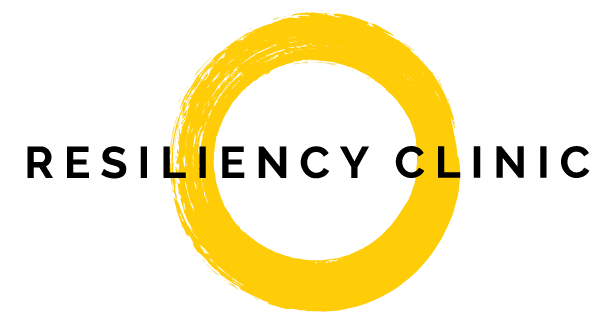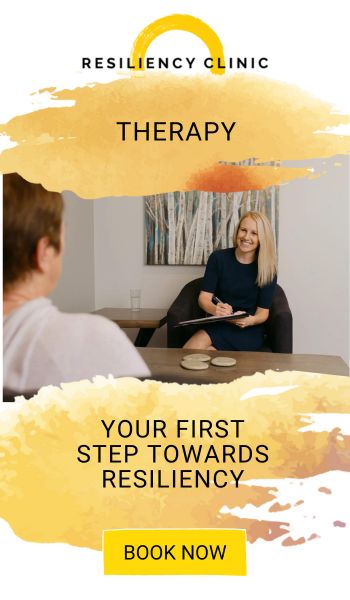Understanding Trauma
Understanding trauma is the first step toward recovery. Trauma refers to an emotional response to a deeply distressing or disturbing event that can leave lasting effects on an individual’s mental and physical health. This could stem from accidents, natural disasters, violent incidents, sexual assault, and emotional or substance abuse. Trauma can manifest in several ways, leading to conditions like post-traumatic stress disorder (PTSD), depression, anxiety, and more. Not everyone who experiences trauma develops PTSD. Most humans often encounter some form of trauma in their lifetimes and, fortunately, are hardwired to survive, but intervention and support are often needed.
Understanding trauma is the first step toward recovery. Trauma refers to an emotional response to a deeply distressing or disturbing event that can leave lasting effects on an individual’s mental and physical health.
The Deep Impact of Trauma

Trauma profoundly affects one person’s life, potentially impacting daily functioning, relationships, and overall quality of life. The psychological effects of trauma may include flashbacks, nightmares, and severe anxiety, while physical effects can range from headaches and fatigue to difficulty concentrating. But with the right treatment and support, people can recover from trauma and lead fulfilling lives.
Recognizing the Need for Help

Accepting the need for professional help is the first step toward your own recovery and healing from trauma. It’s crucial to acknowledge your feelings and symptoms and seek assistance when they start to interfere with your life. Many mental health professionals and clinics are available in Ottawa to provide the necessary support.
One commonly asked question is, “When should one seek help for trauma?” It’s essential to reach out for support when symptoms persist for over a few weeks, significantly disrupt your daily life, or cause you to fear for your safety. Seeking help early on may mean you can bounce back and recover more easily. You can also develop skills and build resiliency to help you with future setbacks in life.
Trauma-Informed Care

In Ottawa, many mental health professionals employ trauma-informed care. This approach recognizes the pervasive impact of trauma and aims to understand and address its aftermath on the individual. Trauma-informed care promotes a safe, supportive environment that aids individuals in their healing journey.
Effective Therapy Options for Trauma
There are various effective therapy options that can help individuals overcome trauma. Here’s an in-depth look at some of the most prevalent methods used in Ottawa:
Cognitive Behavioral Therapy (CBT)
CBT is a type of psychotherapy that helps individuals understand and change thought patterns leading to harmful behaviours or distressing feelings. It can help individuals process their trauma and develop healthier coping mechanisms. The Royal Ottawa Mental Health Centre provides CBT and other trauma-focused services covered by provincial health care.
A common question is, “What is the success rate of CBT?“. While individual results vary, research shows CBT to be effective in treating many trauma survivors, with improvements in about 60% of PTSD cases. Private clinics like the Resiliency Clinic can provide CBT via virtual or in-person care for clients with extended health care plans.

Eye Movement Desensitization and Reprocessing (EMDR)
EMDR is an interactive psychotherapy technique used to alleviate psychological stress. It’s notably effective in treating PTSD. During EMDR therapy, the therapist directs the patient to recall distressing images while generating bilateral sensory input, such as side-to-side eye movements or hand tapping.
People often ask, “How does EMDR help with trauma?”. EMDR is thought to work by allowing the brain to reprocess traumatic events and memories, reducing their emotional impact.
Trauma-Focused Cognitive Behavioral Therapy (TF-CBT)
TF-CBT is a form of cognitive-behavioural therapy that helps children, adolescents, and adults overcome the impact of trauma. It’s particularly effective for individuals who have experienced childhood trauma.
One question frequently posed is, “What does TF-CBT involve?”. TF-CBT typically involves components such as psychoeducation, relaxation techniques, affective regulation, cognitive processing, and trauma narrative work (processing of memories).
Group Therapy

Group therapy provides a supportive environment where individuals can share experiences, learn from others who have experienced trauma, and develop social skills. It can be an empowering experience that reduces feelings of isolation often associated with trauma.
Choosing the Right Therapy to Heal from a Traumatic Event
Choosing the right therapy depends on the individual’s unique needs, the nature of the trauma, and the presence of any co-occurring conditions. Discussing different therapy options with a healthcare provider to decide on individual therapy and the best course of action is essential.
One question that often arises is, “How do I know which therapy is right for me?”. This decision is highly personal and depends on various factors, including the type and severity of your symptoms, other mental or physical health conditions, and personal preferences and lifestyle.

Things to Consider on Your Trauma Recovery Journey
Trauma refers to how you react to an emotional or distressing event, leading to helplessness, fear, or anxiety. Many factors or experiences can cause trauma. Trauma can arise from a variety of experiences, such as witnessing the loss of life, either to yourself or others, in a natural disaster or a car accident. Trauma can be complex.
Since it can result in psychological and physical damage, the effects of trauma may not always be immediately apparent. It can endure over time, manifesting as conditions like post-traumatic stress disorder (PTSD). Trauma has the ability to alter your perspective on the world.
Accept Support
Firstly, healing requires accepting help and assistance. You may need community support or individual therapy. Whichever path you take, you have more chances to recover if you accept support. Often your friends or colleagues offer advice and help. Professional help is a different but also important form of support.
Physical Movement
Exercise has been proven helpful in treating depression. As well as directly supporting healing exercises, these exercises give our brains the endorphins needed to function properly. Many movements will assist you in healing. Sometimes we can’t think our way through stress or trauma; we need to move through the stress.
Work With Your Feelings
Journaling can be an efficient means of controlling stress or managing complex situations. Try it to see if it does help you. If it does not, it may help you to sit down and talk about your feelings instead. Feeling the emotion and accepting it is crucial for healing after a traumatic event or multiple events. Some people may be feeling irritable or angry, sad, or even numb. There is no right or wrong emotion.
Focus On Your Physical Health
When your physical health suffers after trauma, you must focus on your mental health and its impact on your body. Physical sensations and symptoms can influence the mental state of one’s mind. A person’s physical and mental well-being should improve by changing sleep patterns and eating habits.
Practice Self-Care
Self-care can reduce anxiety. Besides that, it is pleasant and enjoyable. Practice self-care as you heal and take regular steps to be kind to yourself. Self-care actions are simple and can involve something as basic as a bath or going for a walk.
Regulate your nervous system
You need to reduce stress and regulate your nervous system when you are agitated or anxious. Not only does this help reduce the physical effects of trauma, but it will help create greater control of your behaviour and interpersonal relationships. Try to spend time in nature as a natural antidote to stress, and use somatic methods such as deep breathing or placing your hand on your heart or stomach to soothe the physical alarm in your body.
Practice Mindfulness or Meditation
Mindfulness can help many people in their healing journey. The idea is to experience life by paying attention with intention. Although it’s not always possible to be in the present moment, we try to return to the present when we notice our minds getting busy and focusing on negative thoughts.
Avoid Recreational Substances
While recovering from trauma, there may be a lot of temptation to drink or consume other substances. Try to replace these unhealthy coping methods with more positive and healing methods.
FAQs: Common Questions
Can trauma ever be healed?
Just as a physical wound from an injury will need time to heal, trauma can heal and be treated. The important point is that avoiding trauma symptoms is NOT a healthy and effective coping technique, and avoiding trauma may worsen things.
Can you overcome the psychological trauma yourself?
It takes time to recover, and each person’s healing is unique. When you are still experiencing trauma symptoms, and they are not diminishing, you might need help. Find a trusted therapist to guide you if you feel traumatized.
How long does trauma take to heal?
Healing is usually a process where the body recovers from increased arousal. The external alarm may be turned off, energy levels are reduced, and the body can resume balance and equilibrium. Usually, healing from an incident occurs within about two months.
What are the three stages of trauma recovery?
Recovery procedures can be classified into three steps: establishing safety, telling your story of the traumatic incident, and reconnecting to the world around you.
What is the hardest part of healing from trauma?
Establishing safety is one of the most challenging aspects of trauma healing. Unless we are safe and comfortable with our bodies and relationships, difficult trauma emotions can’t be processed properly.
What is the fastest way to heal trauma?
Experts believe that reducing stress effectively reduces the immediate aftereffects of trauma. Find ways to eliminate unnecessary stressors, ask for support and reduce expectations of yourself as much as possible. You will eventually find a “new normal,” but you can’t easily speed up the process.
How long does it take the body to recover from trauma?
Normal healing and rehabilitation occur as the body calms down in response to increased agitation. The alarm system will quiet down if the energy level evens out a bit or the body is re-established to a normal state of equilibrium. Usually, normal functioning returns within a month.
How do I get back to normal life after trauma?
If you survived a trauma, a well-trained therapist can combine talk therapy, and a doctor may use medication to treat your symptoms of PTSD or other mood disorders. A mental health professional can help you overcome post-traumatic stress symptoms.
Can you heal from trauma?
Just as physical scarring is a painful process that requires a long healing cycle, an emotional healing process is needed for psychological harm. Ignoring traumatic stress is NOT an effective way to cope.
Conclusion

Living with trauma can be challenging, but it’s crucial to remember that help is available. In Ottawa, various therapy options can provide the necessary support and skills to manage and overcome trauma. The journey toward healing may not be easy, but with the right help, it’s possible. Remember, reaching out is the first step.
Further Resources and Assistance
Our team at the Resiliency Clinic is ready to help – contact us today. Additional resources if you’re seeking help:







